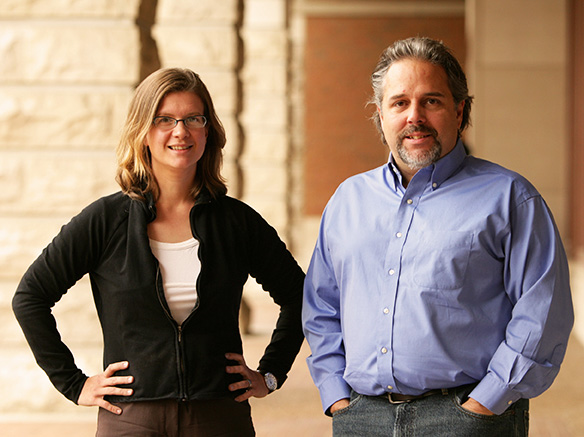
The Perceptual Expertise Network (PEN) – a team of psychologists, neuroscientists and computer scientists who study how the brain acquires visual expertise – has received a five-year renewal of support from the National Science Foundation (NSF).
The PEN collaboration began in 2000 and consists of 9 principal investigators along with their post-doctoral fellows, graduate and undergraduate students from seven institutions in the United States and Canada. The network is coordinated at Vanderbilt University where it is co-directed by Professor of Psychology Isabel Gauthier and Associate Professor of Psychology Thomas Palmeri.

The network is one of four core networks in the Temporal Dynamics of Learning Center (TDLC), one of six Science of Learning Centers established by NSF. TDLC, which is headquartered at the University of California, San Diego brought together a large, interdisciplinary team to study the role of time and timing in learning. NSF has renewed its support for the center with a five-year grant totaling $18 million. Of this, PEN will receive about $4 million. Bruce McCandliss, the Patricia and Rhodes Hart Chair of Psychology at Vanderbilt, is a member of the TDLC scientific advisory board.
“Our team is working together to unravel the mysteries of learning through cooperative, interdisciplinary science,” said TDLC Director Gary Cottrell, who is professor of computer science and engineering at UCSD and a member of PEN.
PEN research is focused on a number of related areas, including:
- Studying how the brain categorizes objects that it sees. PEN researchers have long been interested in how the brain categorizes objects at several different levels of abstraction and how those abilities change with perceptual expertise. For example, PEN researchers have found that people are better at discriminating at an abstract level, such as plant or animal, when the brain is given a brief glimpse of an object. At observation times of one twentieth of a second or longer, however, people begin discriminating more effectively at a more concrete level, such as dog versus cat.
- Identifying the neural processes that lead to superior memory performance. PEN researchers are studying the similarities and differences in the processing of objects for which most people have lifelong experience, such as faces of people of their own race, and objects that small groups of people have studied extensively, such as car fanciers identifying different kinds of automobiles.
- Manipulating experience to understand the factors that affect learning. PEN researchers use novel categories to study learning, such as two virtual races with different facial characteristics. They have shown that training which improves people’s ability to identify individual faces in one virtual race can reduce their ability to identify individual faces in the second virtual race.
- Exploring whether training methods developed as part of basic research within PEN can be used to treat certain mental disorders. PEN researchers are working with individuals with autism to determine if they can improve their ability to recognize faces through computerized training.